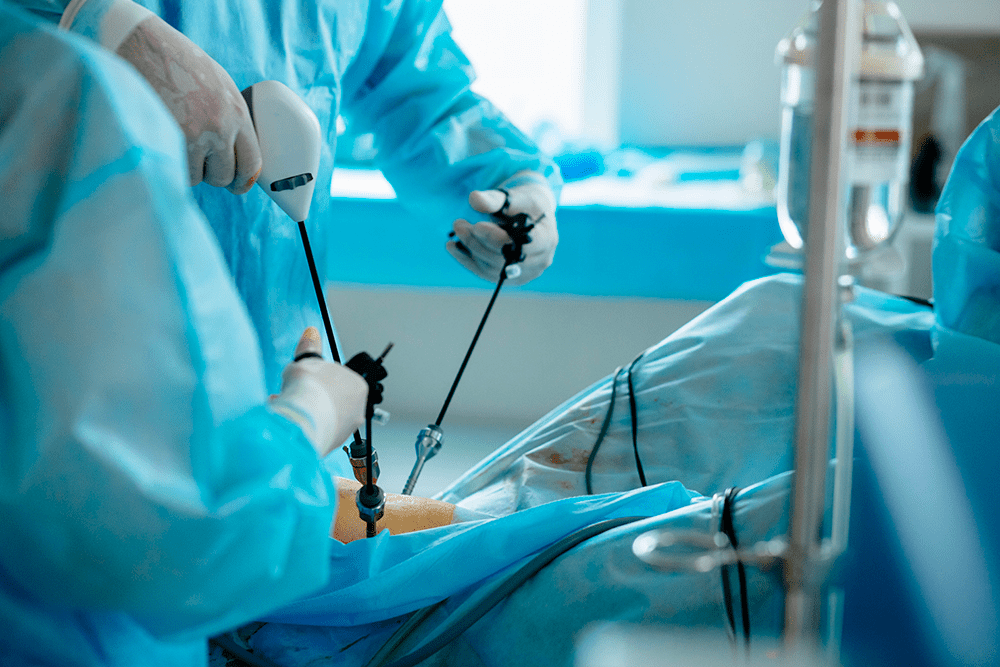- Gastric Sleeve Surgery Transformations
- Significant and sustainable weight loss
- Improved physical health
- Enhanced quality of life
- Reduced dependency on medication
- Long-term health benefits
- Psychological well-being
- Lifestyle changes and support
- Personal empowerment
- 6 Advice for Individuals Considering Weight Loss Surgery
- 1- The extent of excess weight
- 2- Potential risks and complications
- 3- Importance of consulting with medical professionals
- 4- Lifestyle changes
- 5- Having realistic expectations and commitment to long-term success
- 6- Emphasis on mental and emotional preparation alongside physical readiness
- Before Gastric Sleeve Surgery
- Timelines After Gastric Sleeve Surgery
- Post-Operative Care Procedures
- Gastric Sleeve Before and After Pictures
- Short-Term Effects and Adjustments
- Common Short-Term Effects
- Dietary Adjustments
- Adapting to New Eating Habits
- Long-Term Benefits and Lifestyle Changes
- Sustained Weight Loss Results
- Reduced Risk of Obesity-Related Diseases
- Adopting Healthy Eating Habits
- Regular Exercise Routines
- Ongoing Support from Healthcare Providers
- Potential Complications and Risks
- Before and After Transformation Stories
- Conclusion
Are you tired of struggling with your weight? Gastric sleeve surgery could be the life-changing answer you've been searching for. This revolutionary weight loss procedure has transformed the lives of countless individuals, helping them shed those stubborn pounds and regain control of their health.
Gastric sleeve surgery what exactly does it entail? During the procedure, a large portion of your stomach is removed, leaving behind a smaller "sleeve" shape.
This significantly reduces the amount of food you can consume at one time, leading to rapid and sustainable weight loss. Now, let's talk about the incredible transformation that occurs before and after gastric sleeve in Turkey.
Gastric Sleeve Surgery Transformations
Significant and sustainable weight loss
- Gastric sleeve surgery helps individuals achieve substantial weight loss, often resulting in improved overall health and reduced obesity-related risks.
Improved physical health
- Patients experience positive changes in various health indicators, such as decreased blood pressure, improved cholesterol levels, and better control over conditions like diabetes.
Enhanced quality of life
- Losing excess weight can lead to increased mobility, improved self-esteem, and greater participation in physical activities, ultimately enhancing overall well-being.
Reduced dependency on medication
- Many individuals who undergo gastric sleeve surgery in Turkey observe a decreased need for medications used to manage obesity-related conditions, potentially leading to cost savings and improved medication adherence.
Long-term health benefits
- The positive effects of gastric sleeve surgery can extend beyond the initial weight loss phase, contributing to sustained health improvements and reducing the risk of developing obesity-related comorbidities in the future.
Psychological well-being
- The surgery often leads to improved mental health, including reduced symptoms of depression and anxiety, as patients gain confidence and a more positive self-image.
Lifestyle changes and support
- Successful outcomes rely on adopting healthy eating habits, regular exercise, and ongoing support from healthcare professionals, ensuring long-term success and weight maintenance.
Personal empowerment
- Gastric sleeve surgery empowers individuals to take control of their health and make positive changes, inspiring them to embrace a healthier lifestyle and positively impact other areas of their lives.

6 Advice for Individuals Considering Weight Loss Surgery
Before undergoing gastric sleeve surgery, there are several important factors that individuals should consider. such as:
1- The extent of excess weight
It is crucial to evaluate the extent of excess weight and its impact on overall health. Gastric sleeve surgery is typically recommended for individuals with a body mass index (BMI) of 40 or higher, or those with a BMI of 35-39.9 who have obesity-related health conditions such as diabetes or high blood pressure.
2- Potential risks and complications
While gastric sleeve surgery is generally safe, like any surgical procedure, it carries certain risks such as infection, bleeding, and blood clots. It is essential to thoroughly discuss these risks with medical professionals and understand the potential benefits and drawbacks of the procedure.
3- Importance of consulting with medical professionals
Medical professionals can provide personalized advice based on an individual's specific circumstances and health conditions. They will assess whether gastric sleeve surgery is the most suitable option or if other procedures might be more appropriate. Also, to ensure readiness for the surgery, they guide you through dietary changes, physical activity recommendations, and psychological evaluations
4- Lifestyle changes
Gastric sleeve surgery is not a quick-fix solution for weight loss but rather a tool that helps individuals achieve their goals by limiting food intake. After the procedure, significant lifestyle changes are necessary to ensure long-term success. Patients must adopt healthier eating habits by consuming smaller portion sizes and choosing nutrient-dense foods. Also creating an exercise routine with a mix of cardiovascular exercises and strength training is beneficial for sustainable weight loss.
5- Having realistic expectations and commitment to long-term success
This procedure can lead to significant weight loss, and weight loss will occur gradually over time. Patients should be aware that excess skin may be a concern after significant weight loss. Losing a substantial amount of weight rapidly can result in loose or sagging skin. However, there are options available such as cosmetic procedures or non-surgical treatments that can address excess skin concerns.
6- Emphasis on mental and emotional preparation alongside physical readiness
Preparing mentally and emotionally before undergoing gastric sleeve surgery is just as important as physical readiness.
Some individuals may experience emotional challenges such as body image issues or adjusting to new eating habits. Having a support system, including friends, family or Seeking professional therapy can help navigate these emotional hurdles and ensure a positive mindset throughout the weight loss journey.
Before Gastric Sleeve Surgery
| Procedure Steps | Description |
|---|---|
| Initial Consultation | Initial consultation with a bariatric surgeon to discuss weight loss goals and medical history. |
| Medical Evaluation | Comprehensive medical evaluations including blood tests, imaging, and cardiac evaluations to assess overall health and identify potential risks. |
| Psychological Evaluation | Psychological evaluation to evaluate readiness and identify underlying psychological factors. |
| Education and Counseling | Education and counseling on the procedure, potential outcomes, and necessary lifestyle changes. |
| Pre-operative Diet and Weight Loss | Pre-operative diet and weight loss plan to reduce liver size and facilitate safer surgery. |
| Surgical Preparations | Surgical preparations, including medication adjustments and fasting before the procedure. |
| Building a Support System | Building a support system of family, friends, or support groups for emotional support. |

Timelines After Gastric Sleeve Surgery
Recovery after gastric sleeve surgery is a journey that consists of several stages, each playing a crucial role in your overall healing process. Let's take a closer look at these different stages and what you can expect during each one:
- Immediate Post-Surgery: Right after the procedure, you'll be closely monitored in the recovery room until you wake up from anesthesia. This stage typically lasts for a few hours, during which medical professionals will ensure your vital signs are stable and provide pain management as needed.
- Hospital Stay: Following the immediate post-surgery phase, you will be transferred to a hospital room where you'll stay for about 1-2 days. During this time, your healthcare team will monitor your condition, administer medications, and guide you through the initial steps of your recovery journey.
- First Week After Surgery: Once discharged from the hospital, the first week at home is crucial for rest and recuperation. It's important to follow your surgeon's guidelines regarding diet progression and medication intake. You may experience some discomfort or pain during this period as your body adjusts to the changes made during surgery.
- Weeks 2-4: As you enter weeks two to four post-surgery, gradual improvements in energy levels can be expected. Your healthcare provider may advise introducing soft foods into your diet while continuing to prioritize hydration. Light physical activity such as short walks is encouraged but should be done under professional guidance.
- Months 1-3: By this stage, most patients report feeling more energetic and experiencing significant weight loss progress. You will likely transition from pureed foods to regular solid foods gradually while maintaining portion control and adhering to dietary recommendations provided by your medical team.
- Months 3-6: The three-to-six-month mark often brings noticeable changes both physically and mentally. Weight loss continues, and you may start noticing improvements in your overall health and well-being. Regular exercise becomes an integral part of your routine, focusing on building strength and stamina.
- Months 6-12: At this stage, you should be fully adjusted to your new eating habits and lifestyle changes. Your healthcare provider might recommend incorporating a wider variety of foods into your diet while still emphasizing portion control. Physical activity becomes more intense as you work towards achieving optimal fitness levels.
Must-read: Gastric sleeve cost in Turkey
Typically the first Follow-Up Appointment is scheduled within two weeks after surgery, this appointment allows your medical team to assess your healing progress, address any concerns or questions you may have, and make adjustments to your post-surgery plan if necessary.
It's important to note that individual variations exist. While the general guidelines provide a framework for what most patients can expect during their journey, every person's experience will differ slightly based on factors such as age, overall health condition, adherence to post-operative instructions, and metabolism.
Remember that comparing yourself too closely with others can lead to unrealistic expectations or unnecessary worry.
Instead, focus on your personal progress and consult with your healthcare team regarding any concerns or questions you may have along the way. They are there to support you and guide you through your unique recovery process.

Post-Operative Care Procedures
- Pain Management Techniques and Wound Care Managing pain effectively is a top priority during the immediate post-surgery period. Patients may experience discomfort or soreness at the site of incisions or along their abdomen. To alleviate this pain, doctors often prescribe medication tailored to each individual's needs.
- Wound care is also an essential aspect of post-operative care. The surgical incisions require proper attention to prevent infection and promote healing. Medical professionals provide instructions on how to clean and dress these wounds correctly. Following these guidelines diligently can significantly reduce the risk of complications.
- Transitioning from Liquid Diet to Solid Foods During the initial stages of recovery, patients are put on a liquid diet that gradually progresses to solid foods over time. This transition allows the stomach to adjust gradually after obesity surgery in Turkey while ensuring adequate nutrition intake.
- Patients should communicate any concerns or unusual symptoms they experience to their healthcare team promptly. It is essential to be aware of potential side effects or complications that may arise during the immediate postoperative period. These can include nausea, vomiting, constipation, or temporary difficulty in swallowing.
Gastric Sleeve Before and After Pictures
These pictures demonstrate that this procedure is not merely a temporary fix but rather a long-lasting solution for individuals struggling with obesity. By opting for gastric sleeve surgery, you are making an investment in your future well-being.

Short-Term Effects and Adjustments
Common Short-Term Effects
After undergoing gastric sleeve surgery, it is important to be aware of the common short-term effects that you may experience. While individual results may vary, it is not uncommon to encounter some discomfort during the initial recovery period.
- Pain: It is normal to experience some pain or discomfort around the incision sites following surgery. Your healthcare team will provide you with medication to manage this pain effectively.
- Nausea: Nausea can occur due to anesthesia or changes in your digestive system after surgery. To alleviate this symptom, it is recommended to start with small sips of clear liquids and gradually progress to a more solid diet.
- Fatigue: Feeling tired or experiencing low energy levels is common in the early stages after gastric sleeve surgery. This can be attributed to your body adjusting to its new metabolic state. Be sure to listen to your body and rest when needed while gradually increasing physical activity.
Dietary Adjustments
Your healthcare team will provide specific guidelines tailored to your needs, but here are some general points:
- Liquid Diet: In the initial days following surgery, you will be placed on a liquid diet consisting of clear fluids such as water, broth, sugar-free gelatin, and protein shakes. This phase allows your stomach time to heal without putting excessive strain on it.
- Gradual Transition: Over time, you will progress from a liquid diet towards pureed foods and eventually soft solids before returning to a regular diet plan under professional supervision.
- Portion Control: After gastric sleeve surgery, your stomach's capacity will be significantly reduced. It is essential to practice portion control and consume smaller meals more frequently throughout the day to avoid discomfort and promote weight loss.
Adapting to New Eating Habits
Adapting to new eating habits can be challenging but is crucial for long-term success after gastric sleeve surgery. Here are some potential challenges you may encounter along with tips for managing them:
- Food Intolerance: Some individuals may experience temporary food intolerances or sensitivities post-surgery. Pay attention to how your body reacts to different foods and consult with your healthcare team if you notice any adverse reactions.
- Slow Eating: Gastric sleeve surgery reduces the size of your stomach, which means it takes less food to make you feel full. Take small bites, chew thoroughly, and eat slowly to prevent overheating and ensure proper digestion.
- Mindful Eating: Developing a mindful eating routine can help you establish a healthier relationship with food. Focus on savoring each bite, listening to your body's hunger cues, and avoiding distractions while eating.
Long-Term Benefits and Lifestyle Changes
Gastric sleeve surgery can be a life-changing step towards achieving long-term weight loss. Let's delve into the sustained benefits of this procedure and the lifestyle changes that contribute to lasting success.
Sustained Weight Loss Results
One of the primary goals of gastric sleeve surgery is to help individuals achieve significant and sustained weight loss. Long-term success requires ongoing commitment and dedication. While weight loss may be more rapid in the first year after surgery, it gradually stabilizes over time. Many patients continue losing weight for up to two years post-surgery, reaching their goal weight or getting close to it.
Reduced Risk of Obesity-Related Diseases
Carrying excess weight puts strain on various organs and systems within our bodies, increasing susceptibility to conditions such as diabetes, heart disease, high blood pressure, and sleep apnea. For instance, studies have shown that many patients experience improvements in insulin sensitivity after undergoing this procedure. This means better control over blood sugar levels and decreased reliance on medication for managing diabetes.
Adopting Healthy Eating Habits
To build a balanced diet post-surgery:
- Focus on lean proteins: Incorporate foods like chicken, fish, tofu, and legumes to meet your protein needs.
- Emphasize fruits and vegetables: These nutrient-dense foods provide essential vitamins, minerals, and fiber.
- Limit processed foods and added sugars: Opt for whole foods over processed snacks or sugary beverages to support overall health.
Regular Exercise Routines
To incorporate exercise into your daily routine:
- Find activities you enjoy: Whether it's jogging, swimming, cycling, or dancing—choose exercises that you find enjoyable to increase adherence.
- Start slowly and gradually increase intensity: Begin with low-impact exercises and gradually progress to more challenging workouts over time.
- Aim for at least 150 minutes of moderate-intensity aerobic activity per week: This could include brisk walking or other activities that get your heart rate up.
Ongoing Support from Healthcare Providers
Long-term success after gastric sleeve surgery requires ongoing support from a dedicated healthcare team. They play a vital role in monitoring your progress. By staying connected with your healthcare providers even after achieving significant weight loss milestones, you can ensure continued success and overcome any obstacles that may arise.
Potential Complications and Risks
Here's a table summarizing potential complications and risks associated with gastric sleeve surgery:
| Potential Complications and Risks | Description |
|---|---|
| Infection | Risk of surgical site infections, which may require antibiotics or additional medical intervention. |
| Bleeding | Possibility of bleeding during or after the surgery, potentially necessitating blood transfusions or surgical intervention. |
| Leakage | Potential for leakage at the staple or suture line, leading to complications like infection or abscess formation. |
| Stricture | Risk of narrowing at the stomach opening, making it difficult to eat, potentially requiring endoscopic dilation or surgical correction. |
| Acid reflux | Increased likelihood of acid reflux or heartburn post-surgery, necessitating medication or lifestyle modifications for management. |
| Nutritional deficiencies | Reduced stomach size may limit nutrient intake, increasing the risk of vitamin and mineral deficiencies, requiring lifelong supplementation and monitoring. |
| Dumping syndrome | Possibility of rapid emptying of stomach contents into the small intestine, leading to symptoms like nausea, diarrhea, and dizziness, typically triggered by high-sugar or high-fat foods. |
| Gallstones | Increased risk of gallstone formation due to rapid weight loss, potentially necessitating gallbladder removal surgery. |
| Adverse reactions to anesthesia | Possibility of allergic reactions or complications related to anesthesia during the surgery. |
| Long-term weight regain | Risk of weight regain over time if dietary and lifestyle modifications are not maintained post-surgery. |
Before and After Transformation Stories
Inspiring personal stories of individuals who have undergone gastric sleeve surgery showcase the transformative impact it can have on their lives. Here are a few examples:
Sarah's Journey to Health: Sarah struggled with obesity for years, leading to numerous health issues and a diminished quality of life. After undergoing gastric sleeve surgery, she embarked on a remarkable journey of weight loss and improved health. Through dedicated lifestyle changes and ongoing support, Sarah lost over 100 pounds, gained confidence, and now enjoys an active lifestyle with her family.
John's Triumph Over Diabetes: John was diagnosed with type 2 diabetes and was determined to make a change. He opted for gastric sleeve surgery as part of his commitment to reclaiming his health. Following the procedure, he experienced significant weight loss and successfully managed his diabetes without medication. John now shares his story to inspire others and emphasize the positive impact of gastric sleeve surgery on obesity-related conditions.
Emily's Emotional Transformation: Emily battled emotional eating and struggled with her self-image for years. After gastric sleeve surgery, she not only experienced physical changes but also underwent a profound emotional transformation. With the support of a therapist and a newfound sense of self-worth, Emily learned to nourish her body and mind, ultimately leading to sustainable weight loss and improved mental well-being.
Mark's Active Lifestyle Regained: Mark's excessive weight restricted his ability to engage in physical activities he once loved. Determined to regain an active lifestyle, he opted for gastric sleeve surgery. Through diligent post-operative care and consistent exercise, Mark shed excess weight and regained his passion for outdoor activities. He now enjoys hiking, cycling, and playing sports, proving that gastric sleeve surgery can enable individuals to reclaim their active lives.
These personal stories highlight the unique journeys and life-changing transformations experienced by individuals who undergo gastric sleeve surgery. They serve as a source of inspiration and motivation for others considering the procedure, demonstrating the potential for improved health, increased confidence, and a renewed sense of well-being.
Conclusion
In conclusion, Through gastric sleeve surgery, individuals can embark on a journey of physical and emotional transformation that goes beyond mere numbers on a scale. The inspiring personal stories of those who have undergone gastric sleeve surgery serve as a testament to the positive impact it can have on overall well-being.
From shedding excess pounds and reducing the risk of obesity-related comorbidities to gaining confidence, improving self-esteem, and embracing a healthier lifestyle, the benefits of gastric sleeve surgery are multifaceted. It provides a chance to break free from the limitations and challenges imposed by excess weight, allowing individuals to live more active, fulfilling lives.
However, it is essential to recognize that gastric sleeve surgery is not a quick fix, but rather a tool that requires commitment, dedication, and ongoing support. By making an informed decision and embracing the necessary lifestyle changes, gastric sleeve surgery can be a life-changing step towards improved health, happiness, and a brighter future.

Read more: Obesity Surgery Cost in Turkey

 EN
EN
